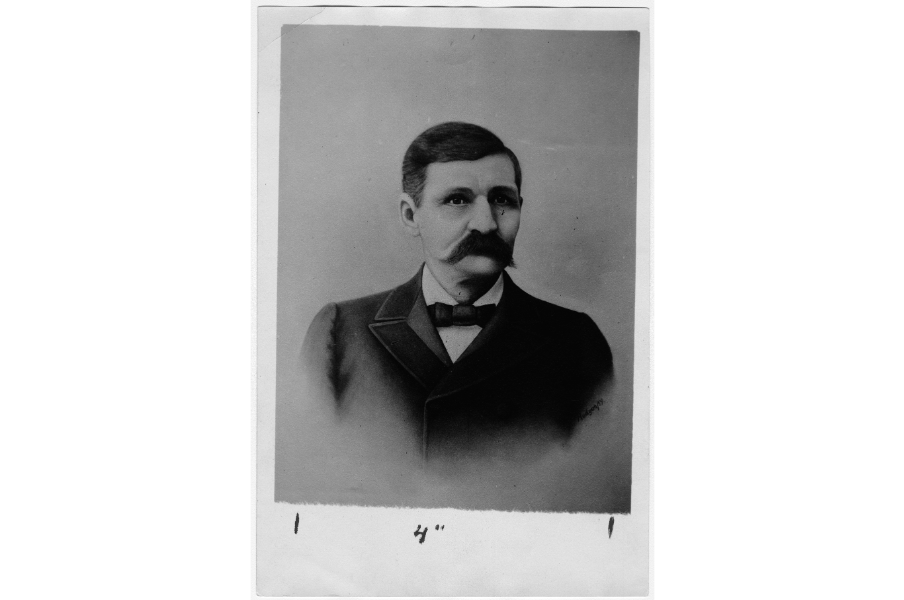 Governor William A. Poynter. NSHS RG2413.PH0-3
Governor William A. Poynter. NSHS RG2413.PH0-3
When John Benwell Kearns (aka John Benwell) was released from the Nebraska State Penitentiary on May 23, 1899, he disappeared quickly from the state but not from the minds of Nebraskans. Convicted of the November 1, 1893, murder of a Cass County farmer, Mattes (or Matthew) Akeson, near Utica, and an assault on Akeson’s son and several others, Kearns was sentenced to life in prison. An accomplice, Harry Hill, was sentenced to death, and was executed by hanging on March 1, 1895. The news that Nebraska Governor William A. Poynter had pardoned Kearns because he was supposedly dying of tuberculosis, was greeted with dismay in many parts of the state, especially in Cass County. In the fall of 1900 A. B. Taylor of Plattsmouth tracked Kearns to Canada, where he was reported to be living with his parents in Ottawa, and working as a bookkeeper.
The Kearney Daily Hub on October 28, 1900, published Taylor’s findings, which also appeared in many other Nebraska newspapers. The Hub said: “Governor Poynter pardoned Kearns on the claim that he was ‘dying,’ but it now develops that Kearns is living in Ottawa, Canada, and is in perfect health. Sixteen months have elapsed since the brutal murderer of old man Akeson was clandestinely and secretly released from the penitentiary and ‘sent home to die,’ but he is not only not dead, but is working every day and has been for the last ten months and is . . . in perfect physical condition.” Poynter had commuted Kearns’s life sentence to seven years and six months and then reduced that term by more than two years. The Hub noted, “Why he was pardoned by Governor Poynter secretly and clandestinely, without notice being given the people of Cass County . . . as required by law, allowed ‘good time’ and hurried out of the state, is also a mystery. The murderer had wealthy relatives and it is presumable at least that they had something to do with securing his release.” Taylor, who had served as court bailiff at Plattsmouth, where Kearns was tried, interviewed Kearns in Ottawa and found him “tall, erect and in fine physical proportion. Nothing is known here of his history in Nebraska.” Kearns told Taylor that he was in the penitentiary hospital when his pardon was granted and credited warden George W. Leidigh, and prison physician H. C. Demaree with helping him secure it.
The Omaha Daily Bee on October 18, 1900, said that after receiving “certificates” from Leidigh and Demaree indicating that “the prisoner was in a dying condition,” Governor Poynter had commuted the life sentence to “seven years and six months with the benefit of his good time which discharges him May 23, 1899.” Kearns told Taylor, “I was released late in the afternoon and was taken to the depot in a carriage. They bought me a ticket through to Ottawa and I lost no time in getting away. . . . If there was such a thing as money used to get it [the pardon] it was without my knowledge.” Kearns refused to discuss “the Cass county affair,” saying, “I am a free man, and hope to get along as if nothing of the kind had ever happened. I will forget it, whether other people do or not.” Kearns may have succeeded in forgetting, but Nebraskans did not. The Hub said on October 31, 1900, “It may be that Governor Poynter will be pardoned for the pardon of murderer Kearns but the pardon will come too late to save his gubernatorial bacon.” Whatever merit the pardon may have had, Poynter was defeated at the polls in November by challenger Charles H. Dietrich of Adams County, by the slim margin of 113,879 to 113,018.



